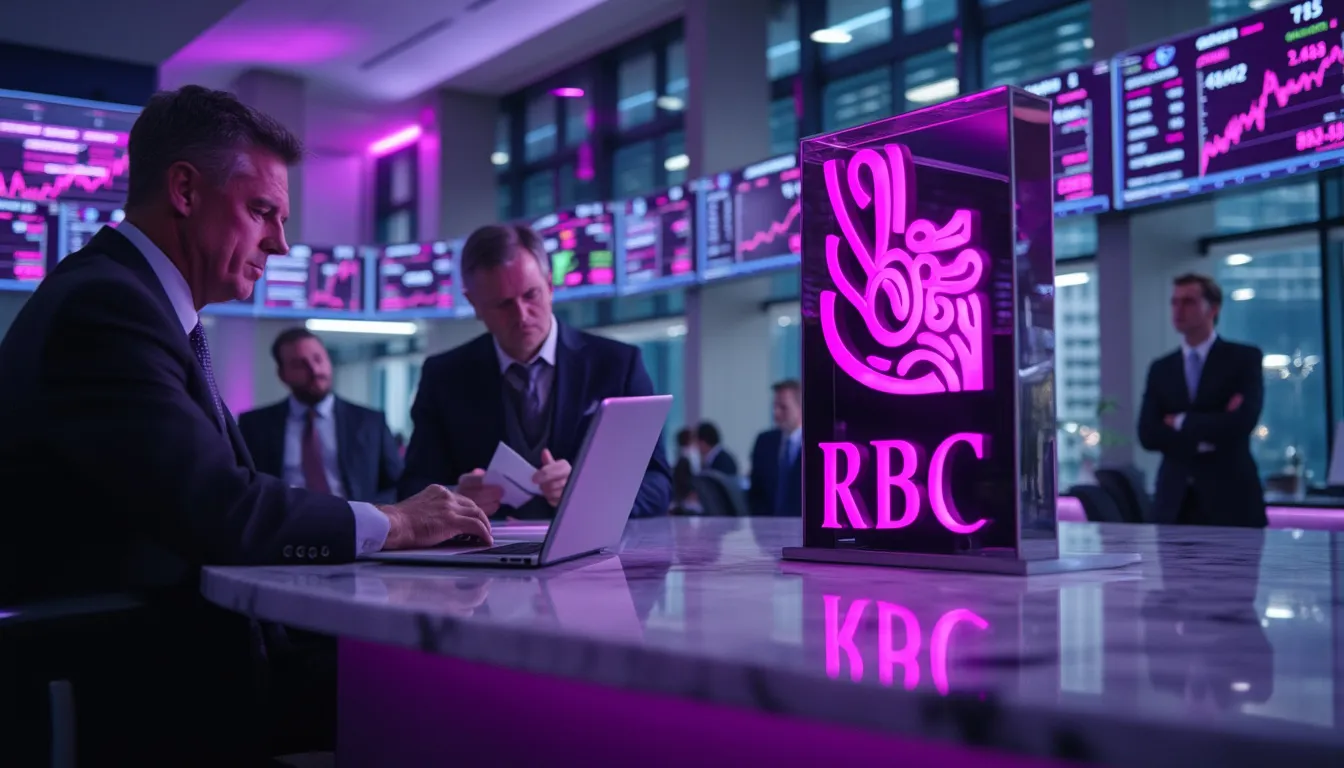Navigating the Downturn: KKR’s Unexpected Drop Highlights Sector Volatility
In a session dominated by shifting sentiment in financials and alternative asset managers, KKR & Co. Inc. (KKR) has emerged as an outlier — not for its outperformance, but for a pronounced decline. As one of the world’s largest private equity firms, KKR commands significant market attention, making today’s drop of -3.76% notable among sector peers. With shares recently trading at $133.90, down from a previous close of $138.74, and volume at 2,176,163, investors are parsing the drivers behind this sudden reversal and what it signals for broader trends in the private equity space.
Key Takeaways
KKR shares fell -3.76% today, underperforming both sector peers and major benchmarks.
Trading volume reached 2.18 million, signaling elevated investor activity amid the slide.
Recent headlines include the appointment of Adam Selipsky, former AWS CEO, as Senior Technology and AI Strategy Advisor, and scrutiny of KKR’s real estate segment due to declining book values and leverage concerns.
Analysts and commentators are increasingly focused on KKR’s exposure to cyclical sectors and its approach to digital infrastructure and AI investments.
KKR’s Business Model: A Private Equity Giant in Transition
Founded in 1976, KKR has evolved from a pioneering leveraged buyout shop into a global investment powerhouse. Its portfolio spans private equity, real estate, infrastructure, credit, and growth equity, with assets under management exceeding $500 billion. KKR’s business model thrives on acquiring, optimizing, and exiting businesses across cycles, often using significant leverage to magnify returns. However, this reliance on market cycles and credit conditions also exposes the firm to heightened volatility — a dynamic that appears to be playing out in today’s market action.
What Makes Today’s Move Stand Out?
KKR’s drop comes at a time when the broader market is relatively stable, and many peers in the alternative asset management space are holding steady or posting modest gains. The sharpness of the sell-off, paired with a surge in trading volume, suggests either a reaction to company-specific news or a broader reassessment of risk in the private equity sector.
Performance Pulse: Dissecting the Day’s Downturn
Price Action and Volume Trends
Current Price: $133.90
Previous Close: $138.74
Day’s Move: -3.76%
Volume: 2.18 million (notably higher than average for a declining session)
Today’s decline stands out against the backdrop of recent strength; KKR shares had been resilient, buoyed by optimism around alternative assets and secular demand for infrastructure and real estate. The abrupt reversal suggests a shift in sentiment, possibly triggered by recent news flow or accumulating concerns over certain business segments.
Historical Context
While today’s loss is significant, KKR’s longer-term chart shows a company that has weathered volatility before. The firm’s share price has climbed steadily over the past few years, reflecting both successful dealmaking and investor appetite for alternative asset exposure. However, the stock is not immune to corrections, particularly as macroeconomic concerns — from rising rates to credit market jitters — intensify.
Sentiment Shift or Structural Signal? Analyst and Market Reactions
Analyst Ratings & Target Shifts
There have been no immediate analyst downgrades reported today, but recent commentary has focused on KKR’s real estate arm, where declining book value and leverage have raised eyebrows. According to a fresh Seeking Alpha note:
“KKR Real Estate Finance saw its second-quarter book value per share dip by 60 cents per share sequentially. The mREIT has been light on new originations, with repayments running significantly ahead of new loans during the second quarter. KREF is currently paying out a 10.4% dividend yield from negative distributable earnings. Liquidity of $757 million provides a backstop for continued payments.” — Seeking Alpha, Sep 3, 2025
Another review of KKR Real Estate Finance points to broader leverage risks:
“KKR Real Estate Finance boasts the big name of KKR backing the firm. The performance has been poor over the last few years. We go over the biggest problem with the firm and tell you why we rate it a Sell.” — Seeking Alpha, Sep 2, 2025
Leadership Moves and Strategic Focus
On the positive side, KKR’s appointment of Adam Selipsky as Senior Technology and AI Strategy Advisor could signal a major push into digital infrastructure and next-generation investment themes:
“Adam Selipsky, former Chief Executive Officer of Amazon Web Services (AWS), will help guide KKR's global digital infrastructure platform as the firm accelerates investments in the next generation of AI, data centers, and energy.” — Business Wire, Sep 3, 2025
This move underscores KKR’s ambition to stay at the forefront of transformative industry trends, leveraging Selipsky’s deep expertise in cloud and enterprise technology.
Sector Headwinds and Thematic Tailwinds
Private Equity Faces a New Reality
Today’s performance can’t be read in isolation. The private equity sector is facing a confluence of challenges:
Higher interest rates have raised the cost of capital, squeezing returns on leveraged buyouts.
Tighter credit conditions make it harder to finance new deals and refinance existing portfolio company debt.
Real estate exposure: As seen in KKR’s real estate finance arm, declining asset values and sluggish origination activity are raising questions about future growth.
However, KKR continues to pivot toward high-growth sectors. The addition of Selipsky hints at a strategic emphasis on technology, AI, and digital infrastructure — areas that could drive outsized returns as legacy sectors face pressure.
Broader Financials Sector Dynamics
KKR’s pullback is also a reminder that alternative asset managers are not immune to market swings or investor risk aversion. While some financials are benefiting from volatility (e.g., trading and market-making operations), those exposed to cyclical sectors or illiquid assets are coming under renewed scrutiny.
What Does It All Mean for Investors?
Recap and Outlook
Today’s sharp decline in KKR shares spotlights the complex crosscurrents facing the private equity sector. Short-term pressures — from real estate woes to shifting interest rate dynamics — are weighing on sentiment. At the same time, KKR’s strategic moves into technology and AI, bolstered by the recruitment of high-profile talent, suggest a firm actively positioning for the next growth cycle.
For investors, the takeaway is clear: while KKR remains a juggernaut in alternative assets, today’s move is a reminder that even the sector’s giants are subject to market, macro, and company-specific risks. Those with a long-term outlook may view these pullbacks as opportunities — provided they’re mindful of the evolving landscape and KKR’s ability to execute on its strategic pivots.

.svg)
.svg)
.svg)
.svg)

.svg)

.svg)
















